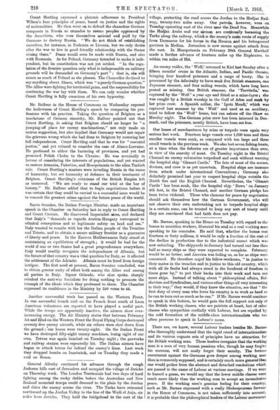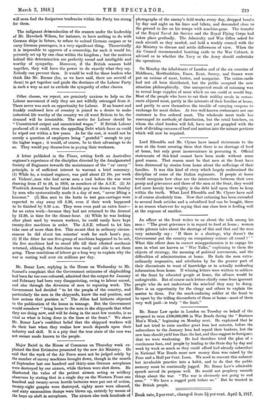There are, we know, several Labour leaders besides Mr. Barnes
who thoroughly understand that the tepid creed of internationalism and its various cognate sets of principles have no attraction for the British working man. Those leaders recognize that the working man is a man of very human passions who, though he may forgive his enemies, will not easily forget their enmity. The furious resentment against the Germans goes deeper among working men than is commonly suppoaed, and is certainly much more general than one would gather from the abstract and detached resolutions which are passed in the name of Labour at various meetings. If we were to hazard a guess, we would say that the lower middle classes were much more likely than the working men to accept an inconclusive peace. If the working men's genuine feeling for their country, such as Mr. Barnes expressed with a really Shakespearean fervour in the House of Commons, is not taken sufficiently into account, it is probable that the philosophical leaders of the Labour movement will soon find the fissiparous tendencies within the Party too strong for them.



























 Previous page
Previous page